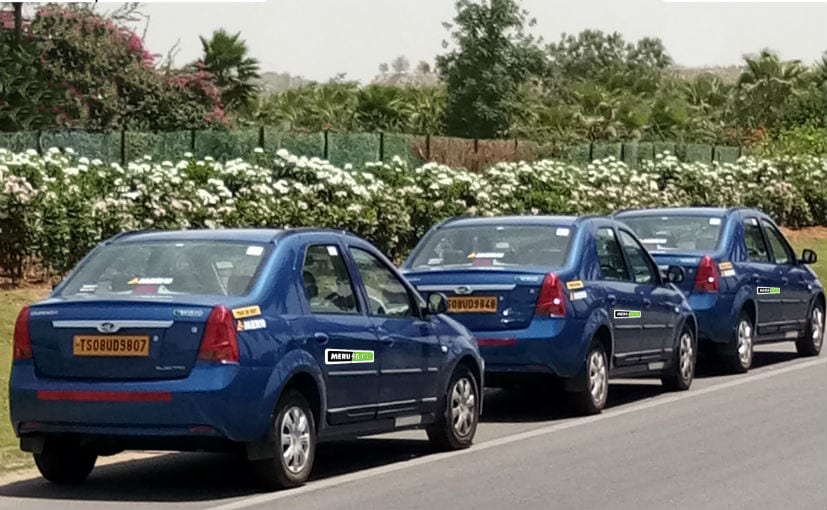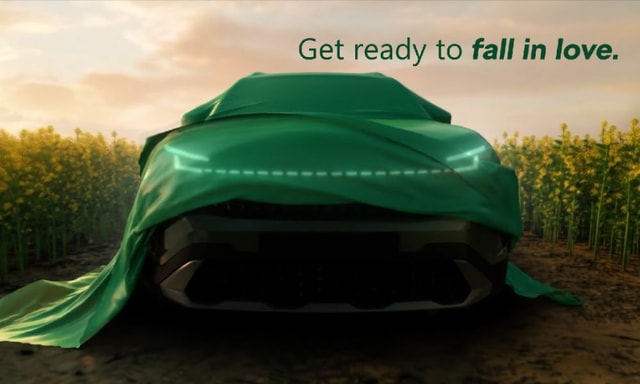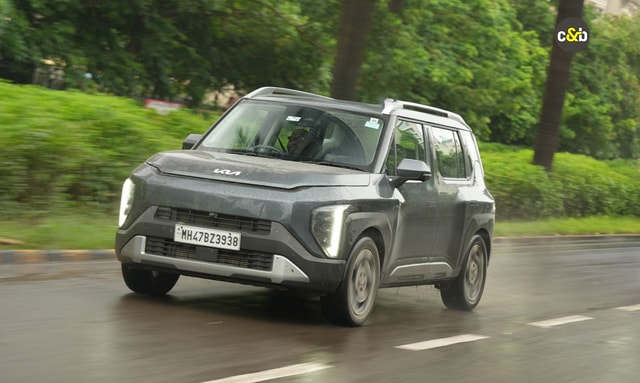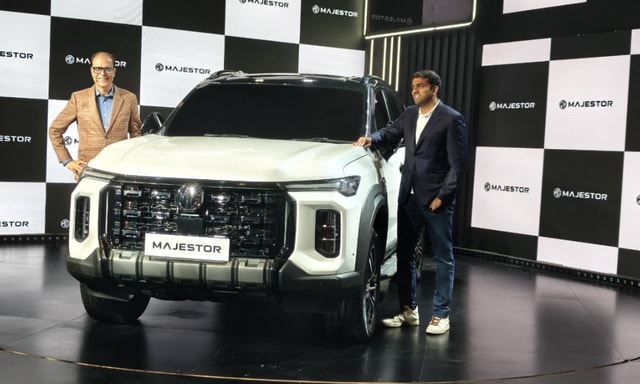Government To Scrap Subsidy For Private Electric Cars In Second Phase Of FAME

According to a media report, the central government is planning to scrap subsidy for private electric car owners in its new Faster Adoption and Manufacturing of hybrid and Electric vehicles or FAME 2.0. Until now, the FAME scheme granted an incentive of Rs. 1.3 lakh for buying an electric or hybrid vehicle in the country. According to government officials, the number of private electric cars plying on the roads is far too less, and hence it has decided to give cash subsidies to cab aggregators instead. The Finance Ministry will soon announce the second phase FAME scheme.
Also Read: Government Of India Extends FAME Scheme For Six More Months
If implemented, cab aggregators like Ola and Uber will have to convert its entire fleet into electric vehicles, which is already a mandate from the government. According to an industry expert who did not wished to be named, "The government wants to first electrify the public transport so as to create a sustainable eco-system for electric vehicles. According to them, the number of private electric car owners is far too less and hence public transport needs to be converted first. This will also help in creating awareness of the EVs and side by side, build the infrastructure as well."
Also Read: Mahindra Electric To Depend On Fleet Operators To Increase Sales
The move, however, will also deter the market from opting for electric vehicles. An SMEV official said, "Till now, people bought electric vehicles for the incentives the government offered. If you take that away, then how will you promote the use of electric vehicles in the country?"
Toyota India, however are in support with the government's decision as it will help to bring down pollution and oil prices down. A spokesperson for the Japanese carmaker said, "We think it is a fair decision from the government and we will cooperate with it. However, we do request for a coherent long term plan instead of achieving short term goals. This step will only help in reducing the pollution levels and also reduce oil prices, which will significantly help the entire industry."
Also Read: India Has Potential To Become Largest EV Exporter: Gadkari
In March this year, the Government Of India announced that it will increase the budget for supporting electric vehicles to Rs. 8,730 crore under the second phase of the FAME scheme. Out of the total amount, it has allocated Rs. 5,550 crore for demand-side incentives, Rs. 2,500 crore for electric buses and Rs. 1,000 crore for electric four-wheelers. Moreover, the scheme also earmarks Rs. 600 crore as incentives on high-speed two-wheelers and Rs. 750 crore high-speed three wheeler owners.
Also Read: SIAM Proposes All New Vehicle Sales In India To Be Electric Vehicles By 2047
In a whitepaper submitted to the Indian government last year, the Society of Indian Automobile Manufacturers (SIAM) said that the proposed electrification of all vehicles by 2030 is not possible and it aims at 40 per cent of new vehicle sales to be pure electric by 2030. It also proposed that full electrification of all vehicles in the country is only possible by 2047.
Source: Times Of India
Latest News
 car&bike Team | Jan 19, 2026Skoda Kushaq Facelift Debut Tomorrow: What To ExpectFacelifted Kushaq to get updated looks and new tech inside the cabin.1 min read
car&bike Team | Jan 19, 2026Skoda Kushaq Facelift Debut Tomorrow: What To ExpectFacelifted Kushaq to get updated looks and new tech inside the cabin.1 min read Jaiveer Mehra | Jan 17, 20262026 Tata Punch Facelift Price, Variants ExplainedUpdated Punch is available in 8 trim levels with naturally aspirated petrol, CNG and turbo-petrol engine options.3 mins read
Jaiveer Mehra | Jan 17, 20262026 Tata Punch Facelift Price, Variants ExplainedUpdated Punch is available in 8 trim levels with naturally aspirated petrol, CNG and turbo-petrol engine options.3 mins read car&bike Team | Jan 17, 2026Skoda Kushaq Facelift Teased Ahead of Launch In Coming WeeksMid-lifecycle update to bring with it styling updates as well as new features inside the cabin.1 min read
car&bike Team | Jan 17, 2026Skoda Kushaq Facelift Teased Ahead of Launch In Coming WeeksMid-lifecycle update to bring with it styling updates as well as new features inside the cabin.1 min read car&bike Team | Jan 16, 2026Pierer Mobility AG Rebranded as Bajaj Mobility AG Following KTM TakeoverThis marks a major shift in ownership and strategic direction in the global motorcycle industry.1 min read
car&bike Team | Jan 16, 2026Pierer Mobility AG Rebranded as Bajaj Mobility AG Following KTM TakeoverThis marks a major shift in ownership and strategic direction in the global motorcycle industry.1 min read Seshan Vijayraghvan | Jan 16, 2026Kia Syros Variant Line-Up Expanded With HTK (EX) Trim; Prices Start At Rs. 9.89 LakhPositioned between the HTK (O) and HTK+ trims, the new variant will be offered in both petrol and diesel options.2 mins read
Seshan Vijayraghvan | Jan 16, 2026Kia Syros Variant Line-Up Expanded With HTK (EX) Trim; Prices Start At Rs. 9.89 LakhPositioned between the HTK (O) and HTK+ trims, the new variant will be offered in both petrol and diesel options.2 mins read car&bike Team | Jan 16, 2026MG Majestor India Launch On February 12Unveiled in India at the 2025 Bharat Mobility Expo, the Majestor is expected to be positioned as a more premium alternative to the Gloster.1 min read
car&bike Team | Jan 16, 2026MG Majestor India Launch On February 12Unveiled in India at the 2025 Bharat Mobility Expo, the Majestor is expected to be positioned as a more premium alternative to the Gloster.1 min read
 Amaan Ahmed | Jan 17, 2026Bajaj Chetak C25 First Ride Review: Basic, Likeable E-Scooter For First-Time RidersThe Chetak C25, in quite a few ways, is poles apart from the larger and more powerful 30 and 35 Series models, but in its mannerisms, it is very much a Chetak.8 mins read
Amaan Ahmed | Jan 17, 2026Bajaj Chetak C25 First Ride Review: Basic, Likeable E-Scooter For First-Time RidersThe Chetak C25, in quite a few ways, is poles apart from the larger and more powerful 30 and 35 Series models, but in its mannerisms, it is very much a Chetak.8 mins read Bilal Firfiray | Jan 9, 2026Toyota Urban Cruiser Hyryder: 10,000 km Long-Term ReviewAfter spending over three months and 10,000 km with the Toyota Urban Cruiser Hyryder Hybrid, we were impressed by its real-world mileage, seamless hybrid, practical comfort, and Toyota reliability. Is it the best C-SUV then?5 mins read
Bilal Firfiray | Jan 9, 2026Toyota Urban Cruiser Hyryder: 10,000 km Long-Term ReviewAfter spending over three months and 10,000 km with the Toyota Urban Cruiser Hyryder Hybrid, we were impressed by its real-world mileage, seamless hybrid, practical comfort, and Toyota reliability. Is it the best C-SUV then?5 mins read Seshan Vijayraghvan | Jan 8, 20262026 Mahindra XUV 7XO Review: Big On Tech, Bigger On ComfortThe new Mahindra XUV 7XO is flashier, feature packed, and comes with more advanced tech. But are the changes just incremental or actually substantial?1 min read
Seshan Vijayraghvan | Jan 8, 20262026 Mahindra XUV 7XO Review: Big On Tech, Bigger On ComfortThe new Mahindra XUV 7XO is flashier, feature packed, and comes with more advanced tech. But are the changes just incremental or actually substantial?1 min read Preetam Bora | Jan 10, 2026Simple One Gen 2 First Ride Review: 265 km Claimed Range!The Gen 2 model of Simple Energy’s first electric scooter gets a fair few updates, including new features, tech, more range and lighter weight. We spent a couple of hours with the Simple One Gen 2 to find out if it manages to impress.6 mins read
Preetam Bora | Jan 10, 2026Simple One Gen 2 First Ride Review: 265 km Claimed Range!The Gen 2 model of Simple Energy’s first electric scooter gets a fair few updates, including new features, tech, more range and lighter weight. We spent a couple of hours with the Simple One Gen 2 to find out if it manages to impress.6 mins read Amaan Ahmed | Jan 3, 2026VLF Mobster 135 300 KM Review: Fun But FlawedA 125 cc scooter with Italian design and Chinese genes is a rare combination, and while some may be tempted to dismiss it because of its origins, the VLF Mobster shows 125s can also be exciting – but not without compromises.11 mins read
Amaan Ahmed | Jan 3, 2026VLF Mobster 135 300 KM Review: Fun But FlawedA 125 cc scooter with Italian design and Chinese genes is a rare combination, and while some may be tempted to dismiss it because of its origins, the VLF Mobster shows 125s can also be exciting – but not without compromises.11 mins read






















































































































